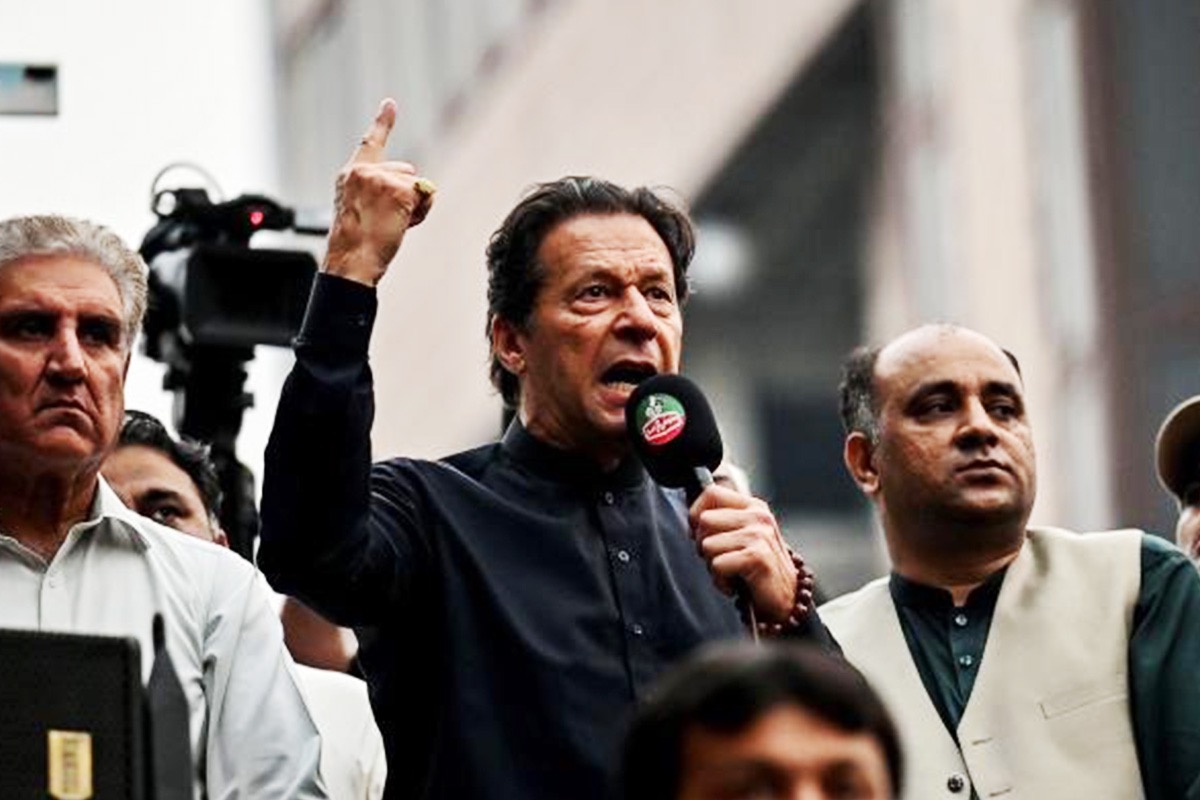Last week’s arrest of former Pakistani Prime Minister Imran Khan and his subsequent sentencing in the Toshakhana case has sparked discussions about his ouster and its underlying factors. Khan’s accusations of US involvement has further been strengthened by the leak of a diplomatic cable.
The Imran Khan saga underscores a pattern of regime changes orchestrated by the United States to advance its interests across the globe.
Pakistani activists and leader of Khan’s party the Pakistan Tehreek-e-Insaf (PTI) have alleged that the former PM was not granted a free & fair trial and that his arrest on August 5 was pre-determined and illegal. His legal team was allegedly restricted from meeting him and entering the court premises. Khan’s residence was allegedly surrounded by cops even before the court delivered its verdict.
ALSO READ: Pak sending drugs-laden drones into India, admits Shehbaz’s aide
The conviction has disqualified Khan from electoral politics for five years, potentially reshaping the political landscape in Pakistan.
Khan’s assertion that the US played a role in his ouster resonates with the broader context of American involvement in global political affairs. The revelation of a secret diplomatic cable, as reported by The Intercept, indicating US pressure on Pakistan to remove Khan due to his neutral stance on the Russia-Ukraine war adds weight to his claims.
The diplomatic cable suggests that the US State Department officials asked the Pakistani ambassador to Washington to alter its position on the Russia-Ukraine conflict. The US Assistant Secretary of State’s statement that a successful no-confidence vote against Khan would mend relations with Washington underscores the potential influence of foreign powers on domestic political scenarios.
ALSO READ: Here is new proof of Pakistan’s active involvement in Ukraine war
The ouster of leaders who challenge the status quo or assert an independent foreign policy is not unique to Pakistan. The history of other nations, such as the Bhuttos in Pakistan, has demonstrated how leaders who oppose or are perceived as threats to US interests have faced tumultuous ends.
Khan’s accusations against the US are reminiscent of broader geopolitical strategies that prioritize control over sovereign nations. This recent incident adds to the list of countries where regime changes have served to maintain or advance American influence.

